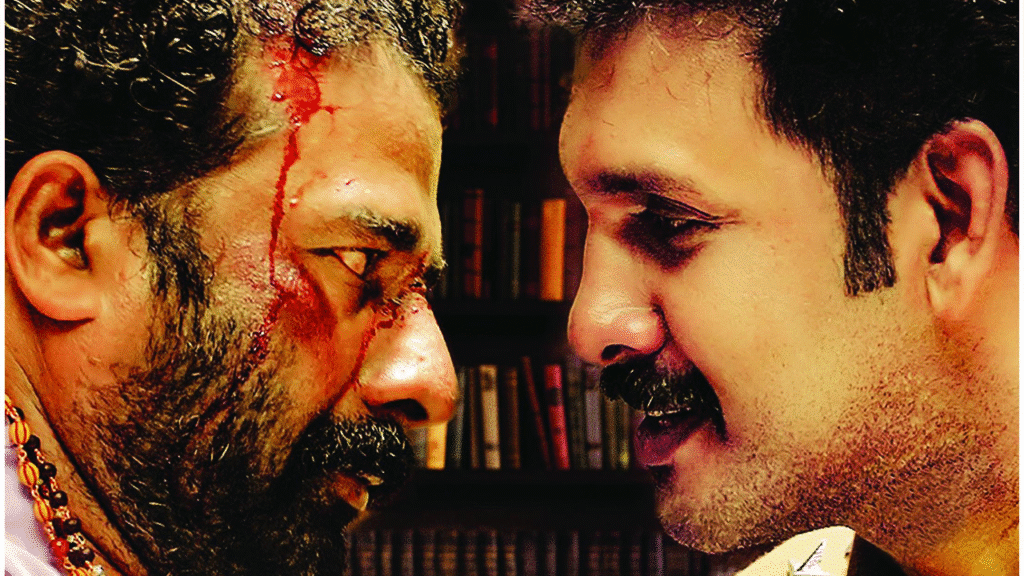Language: Hindi
Age Rating: U/A
Genre: Fantasy, Thriller
In this Rasa movie review, we explore an indie gem that dares to defy formulaic cinema and replaces gloss with grit. Rasa, a genre-bending fantasy-thriller helmed by debutant directors Angith and Preetish Jayaraj, offers a fascinating culinary tale packed with dark secrets, spiritual metaphors, and emotional depth. It’s not just a film about food—it’s a layered exploration of pain, legacy, and transformation through the lens of Indian aesthetic philosophy.
Plot: When Taste Becomes Emotion, and Emotion Turns Dangerous
Varun (Rishi Bissa), a gifted young chef burdened by past trauma, unexpectedly lands the opportunity of a lifetime: to apprentice under India’s most mysterious culinary genius, Chef Ananta (Shishir Sharma). Set in a fortress-like, secluded restaurant simply called Ananta, the narrative builds tension through the strange rituals, silent prep chefs, and recipes designed to evoke pure human emotion—what Indian philosophy calls “rasa”.
Varun is tasked with creating one extraordinary dish to prove his worth. But as he navigates the surreal kitchen dynamics and uncovers the sinister truth behind Ananta’s culinary alchemy, the story peels back darker layers. What begins as a professional challenge turns into a haunting discovery of how taste, emotion, and power intertwine—with life-altering consequences.
Performances: Every Actor Serves Something Special
The success of Rasa hinges entirely on its cast—and they absolutely deliver.
Rishi Bissa as Varun
Making his debut, Rishi Bissa gives a quietly powerful performance as the brooding yet ambitious chef. His portrayal of grief, self-doubt, and eventual awakening is natural and grounded. With minimal dialogues and expressive silence, Bissa draws the viewer deep into Varun’s emotional journey.
Shishir Sharma as Chef Ananta
Veteran actor Shishir Sharma is magnetic as the enigmatic Ananta. He brings gravitas to a role that demands both authority and mysticism. His dialogues—bordering on philosophical riddles—are delivered with such conviction that they never feel over-the-top. Sharma makes you believe that food can, in fact, alter the soul.
Vishishtha Chawla as Meera
As the lively procurement manager and Varun’s only true ally, Vishishtha Chawla brings charm and sincerity. Her character acts as both comic relief and emotional anchor in an otherwise intense environment. Her chemistry with Bissa adds warmth without being overly sentimental.
Supporting Ensemble
Even the smallest roles in Rasa are memorable. The mute, almost robotic kitchen staff become symbolic of the control Ananta wields over his empire. Their presence, though silent, adds texture and intrigue to the narrative landscape. The crew behind the film—Rutuja Patil, Angith Jayaraj, and Preetish Jayaraj—also appear in multiple creative capacities, from production to costume design, enriching the film’s indie spirit.
Direction and Themes: A Taste of the Avant-Garde
Angith and Preetish Jayaraj have crafted a moody, atmospheric thriller that demands patience but rewards curiosity. Their treatment of Indian aesthetic theory—the “Rasas” that govern emotional experience—is both culturally rooted and intellectually daring. The pacing is slow but deliberate, mirroring the kind of fine dining the film revolves around: slow-cooked, multi-layered, and intensely flavored.
Rasa isn’t a thriller in the jump-scare sense. It’s more psychological, operating in shadows, silences, and subtle revelations. The climax may not tie up every thread in a conventional way, but it leaves you thinking—about food, art, legacy, and control.
Visuals and Sound: Simplicity Over Spectacle
What the film lacks in blockbuster production design, it makes up for in atmospheric storytelling. The cinematography captures the isolation of Ananta’s kitchen with cool tones, tight frames, and a deliberate slowness. Every cooking sequence is shot with reverence—each chop, simmer, and plating choice filmed like a sacred ritual.
The haunting background score deserves special praise. It never overpowers the film but lingers like the aftertaste of a dish meant to be savored slowly. The sound design, coupled with the minimal but effective music, heightens both suspense and emotion.
What Works
✅ Original, concept-driven narrative
✅ Outstanding lead and supporting performances
✅ Culturally rich themes tied to Indian philosophy
✅ Taut direction that values mood and atmosphere
✅ A fresh take on the chef-mentor archetype
Minor Flaws, Major Bravery
There are pacing issues, particularly in the second half, where the film leans more into metaphor than motion. A tighter edit and a slightly clearer climax might have improved accessibility. But these are forgivable in a project that pushes boundaries as confidently as Rasa does.
Final Verdict: ⭐️⭐️⭐️⭐️ (4.5/5 Stars)
Rasa is an unconventional cinematic dish—complex, soulful, and not designed for mass taste. But for those willing to sample something bold and experimental, this film offers a deeply satisfying experience. It’s proof that Indian indie cinema can still surprise, enchant, and provoke thought in equal measure.
Should You Watch It?
Absolutely—especially if you enjoy films that challenge conventional narratives and explore deeper emotional terrain. Rasa might be an acquired taste, but it’s also a story that lingers long after the credits roll.
Latest Movie Reviews
- Sarzameen Movie Review: A Stirring Emotional Thriller with Standout Performances
- Dear Maa Movie Review: A Powerful and Poignant Portrait of Motherhood and Ambition
- Mr Reddy Movie Review: A Heartfelt and Inspiring Tale of Struggles, Love & Redemption
- Saiyaara Movie Review: A Soul-Stirring Debut That Strikes the Right Chords
- Sarbala Ji Movie Review: A Delightful, Power-Packed Punjabi Wedding Comedy
- So Long Valley Movie Review: A Chillingly Beautiful Thriller That Delivers a Gripping Payoff
- Maareesan Movie Review: A Gripping and Rewarding Tale of Redemption and Unlikely Kinship


